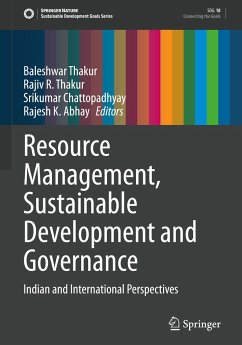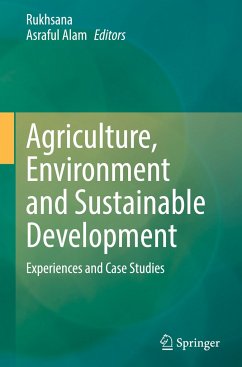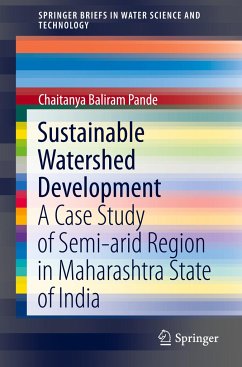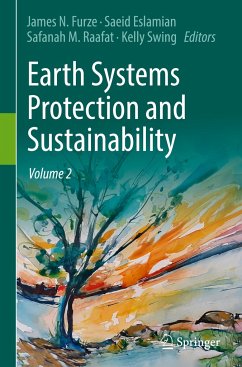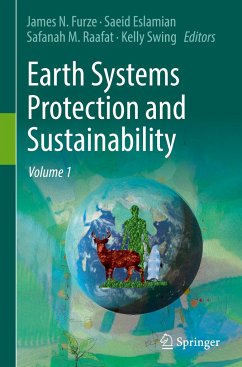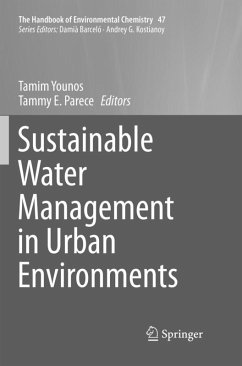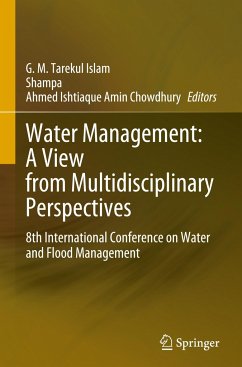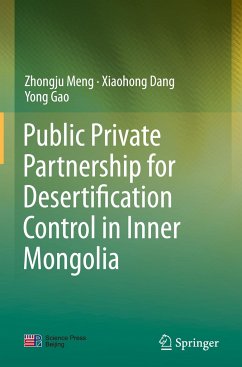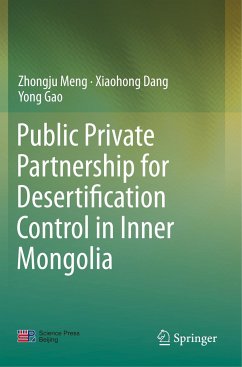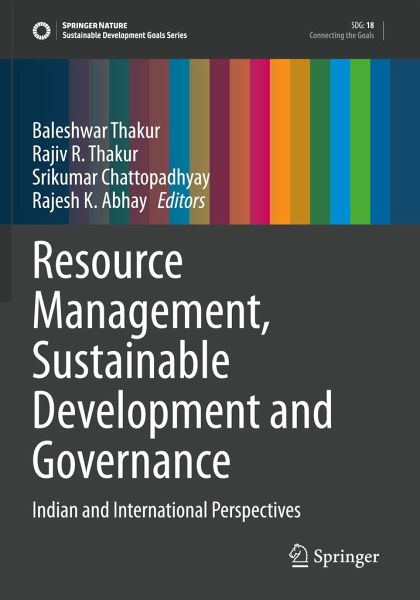
Resource Management, Sustainable Development and Governance
Indian and International Perspectives
Herausgegeben: Thakur, Baleshwar; Thakur, Rajiv R.; Chattopadhyay, Srikumar; Abhay, Rajesh K.
Versandkostenfrei!
Versandfertig in 6-10 Tagen
136,99 €
inkl. MwSt.

PAYBACK Punkte
68 °P sammeln!
This book examines the relationship between natural resource management, sustainable development, and governance with case studies from India and other places covering disaster risk reduction, conflict resolution, capacity building, climate change adaptation and resilience, citizen engagement and ecological conservation. Though the studies focus mostly on cases in India, the volume discusses how governance can be employed to help develop and implement sustainable practices globally through the lens of the United Nations Sustainable Development Goals (SDGs) framework. Readers will learn how to ...
This book examines the relationship between natural resource management, sustainable development, and governance with case studies from India and other places covering disaster risk reduction, conflict resolution, capacity building, climate change adaptation and resilience, citizen engagement and ecological conservation. Though the studies focus mostly on cases in India, the volume discusses how governance can be employed to help develop and implement sustainable practices globally through the lens of the United Nations Sustainable Development Goals (SDGs) framework. Readers will learn how to integrate concepts of resource management, sustainable development, and governance to improve human resilience to global environmental change, and to assess the proper development approaches to assist economically stressed and resource-deprived individuals. The book will be of use to graduate students and academics, policy makers, planners, and nonprofits.





